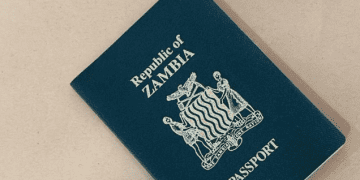Lusaka, Zambia – February 19, 2025 – Zambia’s Ministry of Health has reaffirmed its commitment to ensuring the continuity of HIV service provision despite disruptions caused by recent global aid shifts. The ministry’s latest report, Continuity of HIV Service Provision – Current Status, Gap Analysis, and Recommendations, outlines key challenges, mitigation strategies, and long-term sustainability plans to safeguard the country’s progress in the fight against HIV/AIDS.
Impact of US Foreign Aid Reevaluation
The Ministry of Health detailed the timeline of events following the United States’ decision to reevaluate and realign its foreign aid. On January 20, 2025, the U.S. President signed an executive order leading to a temporary freeze on aid, affecting programs such as PEPFAR (President’s Emergency Plan for AIDS Relief). This resulted in a Stop Work Order (SWO) issued by USAID, CDC, and other agencies, significantly impacting Zambia’s HIV and TB programs.
The aid freeze led to the closure of DREAMS & Wellness Centres, withdrawal of critical healthcare staff, and suspension of key services such as community outreach and data management. The disruption also affected the supply chain of essential medicines, including antiretroviral therapy (ART).
However, following intense advocacy, the U.S. government issued an Emergency Humanitarian Waiver on January 28, allowing limited funding for PEPFAR-supported HIV care, treatment, and prevention programs. By February 11, the decision to suspend certain health services was rescinded, paving the way for partial restoration of aid.
Challenges in Service Delivery
The ministry’s report highlights several challenges affecting HIV service continuity, including:
- Disruptions in HIV Testing & Monitoring – Shortages of HIV rapid test kits, viral load reagents, and TB Xpert cartridges have hindered early detection and monitoring.
- Strained Human Resources – The loss of donor-funded healthcare workers, including data clerks and lab technicians, has led to increased workload and service inefficiencies.
- Interrupted Sample Courier System – Delays in transporting laboratory samples have extended turnaround times for viral load testing and early infant diagnosis.
- Stock Management Issues – The supply chain for ARVs and other HIV-related drugs remains vulnerable, requiring urgent stabilization.
Immediate and Long-Term Recommendations
To counter these challenges, the Ministry of Health has laid out a multi-tiered response strategy:
Immediate Actions:
- Redeployment of Healthcare Workers – Government to absorb some PEPFAR-supported staff and redeploy them to priority HIV service points.
- Reopening of Wellness Centres – To ensure uninterrupted access to HIV prevention and care services.
- Stabilization of ARV and Lab Supplies – Fast-tracking procurement through the Global Fund, CHAZ, and government funding.
Medium to Long-Term Strategies:
- Local Manufacturing of ARVs and Medical Consumables – To reduce dependence on international supply chains.
- Increased Budget Allocation for HIV Services – A push to integrate HIV services into the National Health Insurance Scheme (NHIMA).
- Strengthening the Health Information System – Investment in SmartCare, eLMIS, and LIMS to enhance digital record management and service monitoring.
- Public-Private Partnerships (PPP) – Encouraging private sector participation in HIV commodity distribution and laboratory services.
Future Outlook
Despite the setbacks caused by the aid freeze, Zambia remains committed to ensuring universal access to HIV prevention, treatment, and care services. The Ministry of Health continues to explore sustainable funding models, including domestic resource mobilization and policy reforms, to strengthen the resilience of its healthcare system.
With an estimated 1.3 million people currently on HIV treatment in Zambia, the government emphasizes that no patient will be left behind, and all facilities will continue providing ART services, albeit with some variations in scope.
As Zambia navigates these challenges, a call for greater local investment in HIV services is evident. The Ministry urges stakeholders, including international donors, NGOs, and the private sector, to collaborate in ensuring the uninterrupted provision of life-saving HIV services.

















